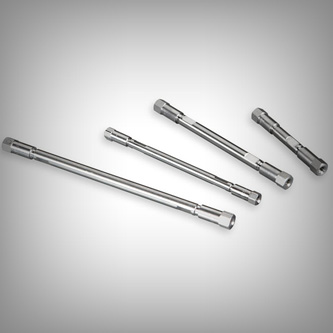You are in our Global Site

Chromatographic Columns

A series of long-chain functional silanes including octyl, dodecyl and octadecyl silanes have been systematically synthesized by Co-Formula technician. These functional silanes have superior hydrophobicity. They are mainly serving as surface modifiers for nanoparticles and fillers, especially suitable for the processing of chromatographic columns.
Listed long-chain silanes as below are specially developed for applications in the market of chromatographic columns.
|
Trade Code |
Chemical Name |
CAS No. |
Molecular Formula |
|
CFS-088 |
Octadecyldimethylchlorosilane |
18643-08-8 |
C20H43ClSi |
|
CFS-317 |
Dodecyldimethylchlorosilane |
66604-31-7 |
C14H30ClSi |
|
CFS-840 |
Octyldimethylchlorosilane |
18162-84-0 |
C10H23ClSi |
|
CFS-049 |
Octadecyltrichlorosilane |
112-04-9 |
C18H37Cl3Si |
|
CFS-4724 |
Dodecyltrichlorosilane |
4484-72-4 |
C12H25Cl3Si |
|
CFS-3669 |
Octyltrichlorosilane |
5283-66-9 |
C8H17Cl3Si |
Related Products of Silane Modified Polymers
Address:
Wuhan Economic and Technological Development Zone, HubeiEmail:
sales@cfmats.comMobile:
+86-27-8445-9282 English
English  中文
中文  日本語
日本語  한국어
한국어  français
français  Español
Español  русский
русский  português
português  العربية
العربية  tiếng việt
tiếng việt  Türkçe
Türkçe 
 English
English  中文
中文  日本語
日本語  한국어
한국어  français
français  Español
Español  русский
русский  português
português  العربية
العربية  tiếng việt
tiếng việt  Türkçe
Türkçe 



